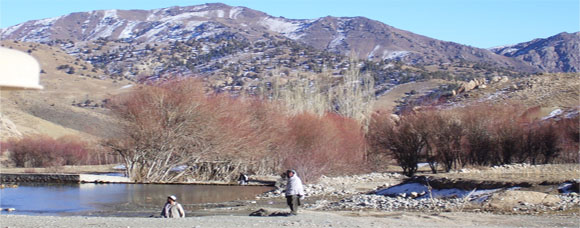|
| Open
For Business - Wall Street Europe January 31, 2006 |
|
| |
By OMAR ZAKHILWAL and DON RITTER
January 31, 2006
LONDON -- The gathering of donor nations for Afghanistan this week
in London is all about securing the emerging nation's progress.
However, yesterday's event, which brought together private businessmen
and investors with the donor nations, might actually hold the real
key to sustaining peace and stability in this country.
Although Afghanistan has come a long way since 9/11, a number of
outstanding challenges still loom large. Most of these reflect the
gap between political progress and progress in providing a better
life for the people. Tangible peace dividends such as more jobs,
housing, a decent diet, education and health care are not achievable
over the longer term without an economy that produces its own wealth.
And that wealth must be produced in a non-opium economy. Counter-narcotics
efforts can only succeed if legitimate jobs and business opportunities
can compete with poppy cultivation.
While economic policies are the final responsibility of the Afghan
government, advice, capacity-building and technical assistance from
the international community can help to establish favorable conditions
for the development of a private-sector economy. Strong pro-market,
pro-investment economic policies can be advanced by donors and Afghans
alike. We do not have the luxury of time and need to get it right
the first time.
With the creation of the Afghan Investment Support Agency, for instance,
the government has taken a giant leap in the right direction. This
"one-stop shop for investors" has eliminated the more
than 30 separate bureaucratic steps that were previously necessary
to get a company started. All this red tape of course contained
a lot of potential for corruption and delay at every turn.
But much more needs to be done. Institutional transformation is
still needed in key government bureaucracies to make them relevant
to a modern economy. This would require new blood with needed skills
and training and education for key employees. To attract and keep
quality staff, some salaries will have to go up, while the government
must trim excess personnel.
Afghanistan is a landlocked country but trade can make it a land
bridge, or better yet, a hub for the vast Central Asian and South
Asian markets. So far, the international community has performed
well in investing in the transportation sector. But even to return
to pre-conflict levels requires sustained financial commitment.
The unreliable supply of electricity is another problem for production
and job creation in Afghanistan. Yet it is also an area of opportunity
for donor nation investments, both public and private. The economy
cannot be modernized and a better life for the people achieved without
electricity. How to sharply increase electric power production looms
high on the priority lists here.
Beyond deficits in transportation and electricity, we believe that
the media-driven perception of the situation inside Afghanistan
is another major hurdle to economic progress in this country. The
risk perception is overblown and desperately needs correction. The
markedly different experiences of business people who invest and
work every day in most of Afghanistan need to get out to the public
to attract more investors.
There are plenty of opportunities. The government is developing
industrial parks and, where there were none only a few years ago,
one can now find more than a dozen banks in the country. Target
sectors include construction materials and mining, agro-processing,
carpets and textiles, logistics and transportation (including packaging)
and energy and mining.
It is about time for the international community to consider financing
private sector projects just as important as financing public sector
projects. Donors should also help connect Afghanistan's economic
and business interests with those in their own country. This means
assisting in a kind of "matchmaking" where foreign business
people and investors can meet up Afghans.
In the words of Afghan President Hamid Karzai: "if you are
an entrepreneur with a vision for exploring untapped opportunities,
Afghanistan is open for business."
Mr. Zakhilwal is president and CEO of
the Afghanistan Investment Support Agency. Mr. Ritter is a former
U.S. congressman, investor in Afghanistan and senior advisor to
the Afghan International Chamber of Commerce.
|
 PRINTABLE VERSION
PRINTABLE VERSION |
|



